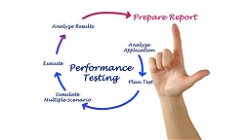Money-Saving Advice and the Best Strategies
James Bond
. 2 min read
Saving money is an important part of personal finance and financial stability. There are many different strategies and tips for saving money, and the best ones for you will depend on your personal financial situation and goals. Some popular money-saving advice includes creating a budget, reducing unnecessary expenses, finding ways to earn more income, and automating savings. Developers have also contributed to the landscape of money-saving strategies by creating innovative financial apps and tools. These applications are designed to simplify budgeting, track expenses, provide investment insights, and even suggest personalized saving goals based on your spending patterns.

Make a Record of Your Expenses
Finding out how much money you spend each month is the first step in beginning to save money. Keep track of all of your expenses, including money tips, coffee, and everything else you buy for the house. When you have all of the information, you should sort the numbers into different categories, such as gas stations, grocery stores, and home loans, and then add up all of the individual amounts.
Reduce the Number of Times You Go to the Store
It's possible that this will save you some money on gas, but the real savings will come from reducing or eliminating your trips to the store. During a quick trip to the store, the vast majority of people are terrible at "just grabbing milk." The price of that gallon of milk, along with anything else you may have passed on the way that reminded you that you needed it, can quickly add up. It is possible that making a list of what you require and planning ahead will save you more money than you initially anticipated.
Nature to Keep Your Home at a Comfortable Temperature
It is a simple and revitalizing routine that you should get into if you are not already doing it. Open your windows to help cool down your home on evenings when the temperature is forecast to drop to 70 degrees or lower. You could also install fans in the windows to assist in drawing in air that is cooler. Just remember to lock the windows once more in the morning before the temperature begins to rise again.
Beware Multi-buys
If you end up with a mountain of food that you are unable to consume before it spoils, then these offers are not a very good deal for you. You should give some thought to your decision before taking advantage of a multiple offer, such as "two for one" or "buy two get one free."
When Comparing Apples to Apples
Use the price tabs that are located on the supermarket shelves to provide you with this information so that you can compare prices across different size packs. Comparing prices per 100g will ensure that you are getting the best deal possible. The value of larger packs typically increases, but only if you plan to consume all of the contents of the pack.
Make a Budget
When we talk about making a budget, we don't have to make it sound like we have to masticate numbers and create ledgers. Students can start off on the right foot with their personal finance management by using something as straightforward as an Excel spreadsheet or even a diary.
Keep an Eye on your Spending
When you already have a budget prepared with you, the next step in line is to track the expenditures that are in hand for you each month. This is the next step in line when you already have a budget prepared with you. If you keep careful track of your funds at regular intervals, purchasing that bag at the mall that you really want to have will be much simpler for you.
Think About Reducing Your Space
Consolidating your belongings and moving into a smaller space can help you save more money in a hurry for a down payment. The process of reducing your expenses and living below your means in order to build up savings is referred to as downsizing. You are practicing minimalism in a sense when you downsize because you are only spending money on the things you absolutely need.
More Stories from
Boost Your Online Sales with Effective Keyword Research
This article discusses the importance of keyword research in online selling strategies, including the differences between low and high volume keywords.
Maximizing Your Business Potential with Pinterest Advertising
This article discusses the benefits of using Pinterest Advertising for businesses. It covers topics such as the history of Pinterest Advertising.
Unlocking Business Growth: Harness the Power of Web Solutions
Embrace the power of the internet to unlock your business's true potential and propel it towards unprecedented growth.
Embracing the Remote Work Revolution: Pros and Cons for Businesses and Employees
This article explores the significant growth of remote work over the past decade, driven by technological advancements and changing work cultures.
A Comprehensive Guide to Performance Testing: Stages, Metrics, and Tools
It explores the importance of performance testing in the development lifecycle, the types of performance testing, and the metrics used to measure performance.






.png?width=40&aspect_ratio=1:1)



.png?width=40&aspect_ratio=1:1)
